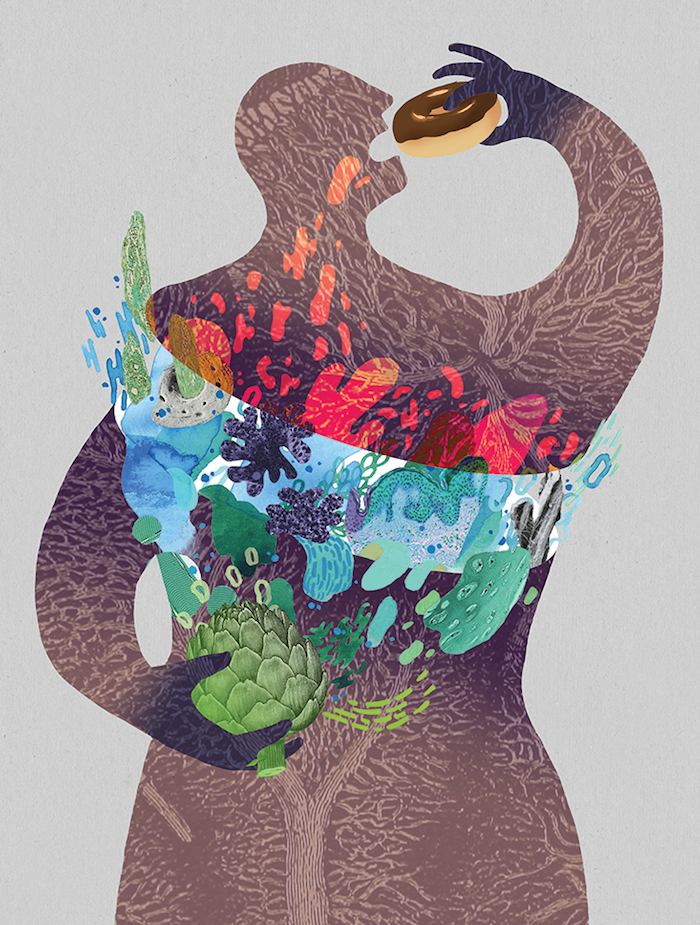 The microbiome of patients admitted to the intensive care unit (ICU) at a hospital differs dramatically from that of healthy patients, according to a new study published in mSphere. Researchers analyzing microbial taxa in ICU patients’ guts, mouth and skin reported finding dysbiosis, or a bacterial imbalance, that worsened during a patient’s stay in the hospital. Compared to healthy people, ICU patients had depleted populations of commensal, health-promoting microbes and higher counts of bacterial taxa with pathogenic strains — leaving patients vulnerable to hospital-acquired infections that may lead to sepsis, organ failure and potentially death.
The microbiome of patients admitted to the intensive care unit (ICU) at a hospital differs dramatically from that of healthy patients, according to a new study published in mSphere. Researchers analyzing microbial taxa in ICU patients’ guts, mouth and skin reported finding dysbiosis, or a bacterial imbalance, that worsened during a patient’s stay in the hospital. Compared to healthy people, ICU patients had depleted populations of commensal, health-promoting microbes and higher counts of bacterial taxa with pathogenic strains — leaving patients vulnerable to hospital-acquired infections that may lead to sepsis, organ failure and potentially death.
What makes a gut microbiome healthy or not remains poorly defined in the field. Nonetheless, researchers suspect that critical illness requiring a stay in the ICU is associated with the the loss of bacteria that help keep a person healthy. The new study, which prospectively monitored and tracked changes in bacterial makeup, delivers evidence for that hypothesis.
“The results were what we feared them to be,” says study leader Paul Wischmeyer, an anesthesiologist at the University of Colorado School of Medicine. “We saw a massive depletion of normal, health-promoting species.”
Wischmeyer, who will move to Duke University in the fall, runs a lab that focuses on nutrition-related interventions to improve outcomes for critically ill patients. He notes that treatments used in the ICU — including courses of powerful antibiotics, medicines to sustain blood pressure, and lack of nutrition — can reduce the population of known healthy bacteria. An understanding of how those changes affect patient outcomes could guide the development of targeted interventions to restore bacterial balance, which in turn could reduce the risk of infection by dangerous pathogens.
Previous studies have tracked microbiome changes in individual or small numbers of critically ill patients, but Wischmeyer and his collaborators analyzed skin, stool, and oral samples from 115 ICU patients across four hospitals in the United States and Canada. They analyzed bacterial populations in the samples twice — once 48 hours after admission, and again after 10 days in the ICU (or when the patient was discharged). They also recorded what the patients ate, what treatments patients received, and what infections patients incurred.
The researchers compared their data to data collected from a healthy subset of people who participated in the American Gut project dataset. (American Gut is a crowd-sourced project aimed at characterizing the human microbiome by the Rob Knight Lab at the University of California San Diego.) They reported that samples from ICU patients showed lower levels of Firmicutes and Bacteroidetes bacteria, two of the largest groups of microbes in the gut, and higher abundances of Proteobacteria, which include many pathogens.
Wischmeyer was surprised by how quickly the microbiome changed in the patients. “We saw the rapid rise of organisms clearly associated with disease,” he says. “In some cases, those organisms became 95 percent of the entire gut flora — all made up of one pathogenic taxa — within days of admission to the ICU. That was really striking.” Notably, the researchers reported that some of the patient microbiomes, even at the time of admission, resembled the microbiomes of corpses. “That happened in more people than we would like to have seen,” he says.
Wischmeyer suggests the microbiome could be tracked like other vital signs and could potentially be used to identify patient problems and risks before they become symptomatic. In addition, now that researchers have begun to understand how the microbiome changes in the ICU, Wischmeyer says the next step is to use the data to identify therapies — perhaps including probiotics — to restore a healthy bacterial balance to patients.
Source: Daniel McDonald, Gail Ackermann, Ludmila Khailova, Christine Baird, Daren Heyland, Rosemary Kozar, Margot Lemieux, Karrie Derenski, Judy King, Christine Vis-Kampen, Rob Knight, Paul E. Wischmeyer. Extreme Dysbiosis of the Microbiome in Critical Illness. mSphere, August 2016 DOI: 10.1128/mSphere.00199-16











